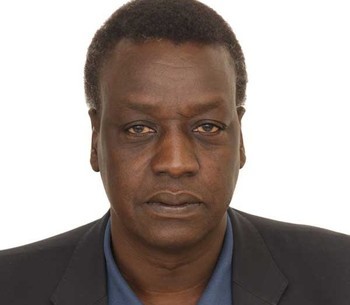Agreement is agreement when parties agreed on all points and areas of difference. What is going to be signed in Khartoum will absolutely not meet the minimum requirements of any decent peace agreement as mediator (Khartoum) and other parties have accepted that there are still areas of difference that will be referred to IGAD. It would be diplomatically embarrassing for Khartoum to invite heads of state of IGAD to attend the signing ceremony of peace agreement that is half-cooked.
Although Khartoum has started the implementation of Khartoum Declaration Agreement that allows it to bring its forces to protect the oilfields in Upper Nile and to siphon the oil proceeds to rescue its collapsing economy, Khartoum has succeeded in dividing oppositions including FDs with Juba feeling triumphant when a country is virtually under the protracted or condominium rule of Sudan and Uganda. While Khartoum is virtually occupying the Upper Nile Region under the pretext of providing security to the oilfields that was disgracefully agreed by all the South Sudanese opposition parties, Uganda is alleged to virtually take control of Eastern and Central Equatoria. It is likely that Ethiopia and Kenya may be tempted to take their share of the cake of South Sudan by occupying the territories along their borders.
What is alarming is that the opposition parties (FDs, NAS and PDM) are cleansing the image of Juba by projecting it as keen to peace and to take the burden of blame for rejecting peace agreement that is not peace but a fragile peace that is most likely to be dishonored by Juba or IO. While I do understand the valid points raised by FDs, NAS and PDM not to initial Khartoum Peace Agreement, the people of South Sudan want peace at any cost and burden of blame may shift to the opposition parties rather than to Juba that is a real obstacle to a genuine peace. In particular, FDs are seen as symbol of liberation and real change makers and for them to show their disunity and organizational dysfunctional cast doubt on their capacity to provide alternative leadership and may make Juba and indeed the people of South Sudan to laugh at them as they undermine the very ideals of collective and institutional leadership on which they differ with Juba.
Khartoum will push for the signing ceremony of unfinished peace agreement and I am sure that Juba and IO are likely to dishonor such fragile agreement. I hope the opposition parties will unite and be strategic in shifting the burden of blame of the failure of implementation of such peace agreement to Juba.
The author, Dr. Luka Biong Deng Kuol, is a Global Fellow of Peace Research Institute in Oslo (PRIO).
The views expressed in ‘opinion’ articles published by Radio Tamazuj are solely those of the writer. The veracity of any claims made are the responsibility of the author, not Radio Tamazuj.




